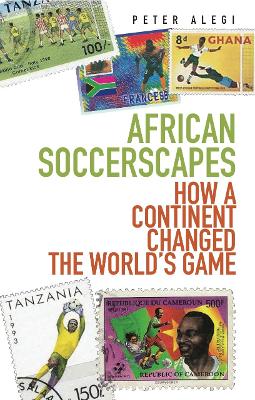Africa in World History
1 total work
From Accra and Algiers to Zanzibar and Zululand, African football today reflects the history and culture of those who play the game and how they have shaped it in a distinctively African manner. Football may obey global rules, but the influence of magicians and healers, the nurturing of different tactics and styles of play, and local forms of spectatorship give football in the continent a cultural and sporting imprint all of its own . In African Soccerscapes Peter Alegi explores how football was influenced by colonialism, the growth of cities, independence, and global capitalism. Regional differences and the links between sport, culture and politics feature prominently in his book. In the independent era football offered a rare form of 'national culture' in ethnically diverse nations and symbolized pan-African unity and solidarity through the anti-apartheid struggle and the campaign for more guaranteed places for African teams in the World Cup finals. Huge numbers of Africans play overseas, disproportionately rewarding European leagues at Africa's expense, and this phenomenon is discussed, as are the recent privatization of the African game, football development programs and the growth of women's football.
